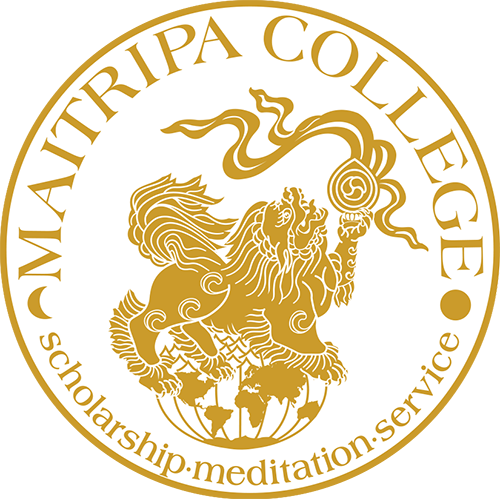(2 credits) This class surveys the foundational philosophical ideas of the Buddhist tradition as presented by the great pandits of India and commented upon by the Tibetan inheritors of the Indian Buddhist tradition. The course will make use of philosophical treatises (primary sources in translation), literature, and historical analysis to present the foundations of Buddhist philosophy. Readings may include selections from Vasubandhu’s Abhidharmakosha, Dharmakirt’s Pramanavarttika, the Abhisamayalamkara (attributed to Maitreya), Shantideva’s Guide to the Bodhisattva’s Way of Life, and “Seventy Topics” from the Ornament of Clear Realizations by Maitreya, as well as modern scholarly analysis of the same.
There will be a particular focus on the readings as they relate to the medium and great scope of the Lamrim (Stages of the Path genre) as presented by the Tibetan scholar Je Tsongkhapa and others. Students will gain a strong foundation in Buddhist philosophy including key topics that relate to the medium and great scopes (ways of describing spiritual practitioners’ stages of motivation and aims) such as: cause and effect, the potential for enlightenment, and the structure of existence according to the Buddhist world view. Students will also gain a strong understanding of the Buddhist philosophic underpinnings of critical concepts such as: loving kindness, great compassion, and abandoning the mind of self-cherishing, the mind of enlightenment, the six perfections, and an in-depth examination of the path of a bodhisattva.


